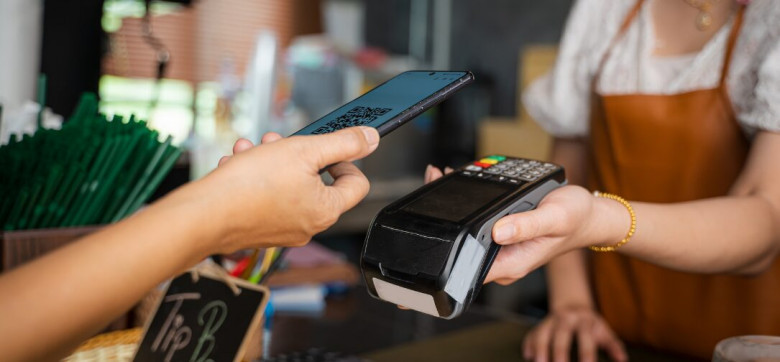views

Sweden, known for its advanced technological ecosystem, has emerged as one of the most innovative nations in terms of mobile payment solutions. The Sweden Mobile Payment Market has experienced exponential growth over the past decade, transforming how individuals and businesses conduct financial transactions. With a high rate of smartphone penetration and a strong preference for digital transactions, mobile payment platforms in Sweden are playing a pivotal role in enhancing financial inclusion, providing users with easy access to banking services, and supporting the shift toward a cashless society.
Overview of Sweden’s Mobile Payment Market
The mobile payment market in Sweden is characterized by a diverse range of platforms catering to different needs, from peer-to-peer (P2P) transfers to merchant payments. Popular mobile payment services like Swish, Klarna, and Zettle are frequently used for day-to-day transactions, online shopping, and business-to-business (B2B) payments. These services have gained widespread adoption, partly due to Sweden’s high level of digital literacy and the country's strong infrastructure in internet and mobile connectivity.
As of recent reports, more than 80% of Swedes use mobile payment platforms in some form, making it one of the most advanced mobile payment markets in the world. A study by the Swedish central bank (Sveriges Riksbank) indicated that nearly half of all retail payments are now made via mobile devices, further solidifying the importance of mobile payments in the Swedish economy.
Key Mobile Payment Platforms in Sweden
1. Swish: Swish is by far the most popular mobile payment platform in Sweden, with over seven million users. Founded by a collaboration of major Swedish banks, Swish allows users to send money in real time using only a phone number, making transactions both convenient and secure. Swish is widely used for P2P transfers, bill payments, and even donations. The platform has grown to be a trusted payment solution, particularly in the context of everyday payments, both in-store and online.
2. Klarna: Klarna is a well-known Swedish fintech company that provides a mobile payment solution focusing on online shopping. Klarna’s payment platform allows customers to buy now and pay later, giving them flexibility and improved financial management. Klarna is often integrated with global retailers, and its Buy Now Pay Later (BNPL) service is gaining international popularity. The platform’s integration with mobile devices allows for easy one-click payments, making the checkout process quick and seamless.
3. Zettle by PayPal: Zettle, previously known as iZettle, is a mobile payment service tailored for small and medium-sized businesses. It allows businesses to accept card payments via smartphones and tablets, facilitating efficient point-of-sale (POS) transactions. Zettle is an excellent example of how mobile payments cater not just to consumers but also to businesses, enabling smoother cash flow management for small enterprises. Since being acquired by PayPal, Zettle has gained a broader reach and continues to innovate in providing solutions for entrepreneurs and small businesses.
4. Other Notable Platforms: Other players in Sweden’s mobile payment market include Revolut, Apple Pay, and Google Pay, all of which have made inroads into Sweden’s highly digitalized economy. These global giants offer mobile wallet and contactless payment solutions, competing with local solutions like Swish.
The Role of Mobile Payment Platforms in Financial Inclusion
Financial inclusion refers to ensuring that individuals, regardless of their socio-economic status, have access to affordable and useful financial products and services. Sweden’s mobile payment platforms have played a significant role in enhancing financial inclusion in several ways.
1. Access to Banking Services for the Unbanked: Although Sweden has a high rate of banking penetration, there are still some individuals who are excluded from traditional financial systems. Mobile payment platforms allow these individuals to participate in the economy by providing a way to make payments, transfer funds, and manage finances without needing a traditional bank account. Services like Swish make it easier for people to send and receive money directly from their smartphones without relying on banks or credit cards.
2. Bridging the Digital Divide: Sweden’s mobile payment systems have also been instrumental in bridging the digital divide. With the widespread availability of smartphones and mobile internet, people from all walks of life are now able to make payments, access banking services, and manage their money on their mobile devices. This inclusion is crucial for individuals in rural areas, who might have limited access to physical bank branches but can still access mobile financial services with ease.
3. Enhanced Convenience for Vulnerable Groups: The elderly, immigrants, and people with disabilities are often vulnerable to financial exclusion. Mobile payment platforms, with their user-friendly interfaces and accessibility features, have empowered these groups to take control of their financial transactions. Services like Swish’s simple interface and real-time transfers have eliminated many barriers to entry for people who might find traditional banking systems cumbersome or intimidating.
4. Promoting Financial Literacy: Mobile payment platforms often come with educational tools and resources, improving users’ understanding of financial products and services. For example, many platforms provide insights into transaction history, budgeting tools, and savings advice. This educational element contributes significantly to financial literacy, ensuring that people are better equipped to make informed decisions about their finances.
Sweden’s Push Toward a Cashless Society
Sweden has long been at the forefront of a global push toward a cashless society. The country’s progressive stance on digital payments has resulted in a steady decline in cash usage. In 2018, data from the Swedish central bank revealed that only 13% of all retail payments were made using cash, compared to over 40% in 2010. This shift is driven by the widespread adoption of mobile payment platforms, which are seen as more convenient, secure, and efficient compared to traditional cash transactions.
The Swedish government has actively supported the move toward a cashless society by investing in digital infrastructure and promoting digital payment solutions. As a result, mobile payments are not just limited to urban areas; rural regions also benefit from the extensive network of mobile payment options.
Challenges in the Mobile Payment Market
While Sweden’s mobile payment ecosystem is largely successful, there are still some challenges that the market faces. One of the main concerns is security. With the increasing reliance on mobile devices for financial transactions, cyber threats such as hacking and fraud are becoming more prevalent. Mobile payment providers in Sweden must continuously innovate to enhance security measures, such as biometric authentication and encrypted transactions, to safeguard user data and protect against fraud.
Another challenge is the risk of financial exclusion for those who may not have access to smartphones or reliable internet connectivity. Although mobile payments are widely accessible, not everyone has the means to fully engage with digital payment systems. Efforts to ensure that mobile payment solutions remain inclusive for all demographic groups are ongoing.
Conclusion
Sweden mobile payment market is a model for how digital innovation can drive financial inclusion, making financial services more accessible, secure, and efficient for people from all walks of life. Platforms like Swish, Klarna, and Zettle have revolutionized the way Swedes manage their finances, offering ease of access, improved security, and a wide range of services tailored to individual and business needs. The country’s commitment to a cashless society, coupled with its strong infrastructure and progressive digital policies, has positioned Sweden as a global leader in mobile payments.
As the adoption of mobile payment solutions continues to rise, the future of Sweden’s mobile payment market looks bright, promising further innovations and an even more inclusive financial ecosystem. However, the continued focus on security and inclusivity will be essential in ensuring that no one is left behind in this digital financial revolution.






















Comments
0 comment